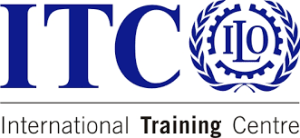Just Transition Forum 2021: Energy and jobs to power the future

Online
Just Transition Forum 2021: Energy and jobs to power the future
13–17 December 2021
The course is available in English
Context
The energy sector powers economies and sustains jobs. It also generates about two-thirds of global greenhouse gas emissions. If the Paris Agreement goals are to be met, the energy transition needs to accelerate and reach a tremendous scale. There will be substantive employment and social impacts that need to be anticipated and addressed. Overall, it is estimated that the transition will deliver net job gains. Deliberate policy efforts based on social dialogue will be required from the onset to ensure that negative social implications are minimised and that the potential for decent jobs turns into reality. Targeted interventions will be essential to address spatial, temporal, sectoral and occupational misalignments in job gains and losses.
The emergence from the COVID 19 crisis presents an unprecedented moment to restart economies and fuel growth with sources of energy that are clean and sustainable. Recovery packages provide the opportunity to maximise positive dividends in terms of employment and social outcomes and the decoupling of growth from greenhouse gas emissions.
The International Renewable Energy Agency (IRENA)’s Post-COVID recovery: An agenda for resilience, development and equality report projects that using recovery funds to accelerate energy transitions could have net positive impacts on employment and GDP, while contributing to reaching global climate and sustainability goals. A Green Energy scenario modelled by the Partnership for Action on Green Economy (PAGE) and Cambridge Econometrics, sees over 20.5 million jobs being added across economies globally by 2030, compared to around 3 million additional jobs in a business-as-usual scenario. The International Energy Agency’s (IEA) latest estimates indicate that under a scenario of net-zero emissions until 2050 one could even expect a net employment gain of 25 million jobs until 2030 in clean energy and related sectors. Both IRENA and IEA find that global net job benefits can also be obtained while staying on course for 1.5°C to 2050. Already today, some 12 million jobs have been created in the renewable energy sector according to IRENA’s latest estimates.
Yet such positive employment impacts need to be facilitated, and negative impacts, particularly those related to fossil fuel retirement, need to be identified and addressed. The energy transition must be actively shaped to be just. Drawing upon the International Labour Organization’s (ILO) Guidelines for a Just Transition towards Environmentally Sustainable Economies and Societies for All, recovery packages need to include effective measures to ensure structural changes maximise decent work opportunities, and leave no enterprises, workers or communities stranded. Complementary policy measures for a just energy transition are anchored in specific contexts and realities, and include investment strategies, industrial policies, skill training and retraining as well as social protection measures and the application of labour standards. IEA also convened a Global Commission on People-Centred Clean Energy Transitions which has developed 12 recommendations that provide focused advice on how to ensure that energy sector policies are truly people-centred and inclusive. IRENA also finds that women accounting for one-third of the global renewables workforce, with their participation varying widely among countries and industries. This underscores the need to continue to enhance the focus on the inclusion of women as well as underrepresented and marginalised groups.
Against this background, the ILO and its partners are convening the Just Transition Forum 2021 bringing together the most influential players in the field of a just energy transition. The Forum gathers social partners, sector experts, policy makers, academia and civil society to discuss the latest research, knowledge and insights and to share best practices and lessons learned as well as the latest discussions.
The Forum will in particular draw on the outcomes from recent major international processes such as the UN High-level Dialogue on Energy as well as the COP26.
TOPICS
The following topics will be at the centre of discussion during the Just Transition Forum 2021:
- The employment effects from a transition towards renewable energy and strategies for maximising positive employment and social impacts from investments in clean energy
- Best practices and approaches to shape a just transition in coal regions through economic policies and skills development
- The job impacts of energy efficiency measures
- Experiences on the implementation of social protection measures in transition settings
- The use and impact of fiscal measures and price incentives on a just transition
- The role of public-private engagement in shaping a just transition
Harnessing the potential of innovation and future thinking to unlock the potential of the transition to a clean energy setting
Who attends this forum?
The Just Transition Forum 2021 is targeting a broad range of participants from different backgrounds and with a particular stake or interest in shaping a just energy transition. This includes:
- Policymakers, decision-makers, and technical staff from local, regional and national government, trade unions, employers’ organizations, civil society organizations, businesses, and research institutions
- Staff and practitioners from international development partners, UN agencies, and other specialized institutions.
- Citizens interested in or directly affected by the transition to clean energy.
Structure
The Just Transition Forum 2021 will be fully virtual and run over one week from 13 to 17 December. It will provide a space for learning as well as exchange between participants via a dedicated conference platform. Live sessions will be held each day between 12:30 p.m. and 4 p.m. Central European Time while the conference platform will be accessible throughout the entire week 24 hours a day.
The Forum will host a high-level segment aimed at sharing insights from political leaders and heads of organizations on the most recent and relevant (inter-) national processes, strategies and experience in the field of a just energy transition.
Technical experts will share their insights, research findings and experience in live discussions. They will be available to engage with participants through Q&A. In interactive sessions, participants will be able to exchange with experts and peers on selected topics guided by a dedicated learning methodology and external facilitators. The Just Transition Forum 2021 will also see the launch of ILO’s first global Just Energy Transition Challenge.

Language
All sessions of the Just Transition Forum 2021 will be held in English.
Information and registration
Participation is free of charge, registration is required at:
https://oarf2.itcilo.org/CST/A9713775/en
For further information, please contact:
greenjobs@itcilo.org
Organizers






